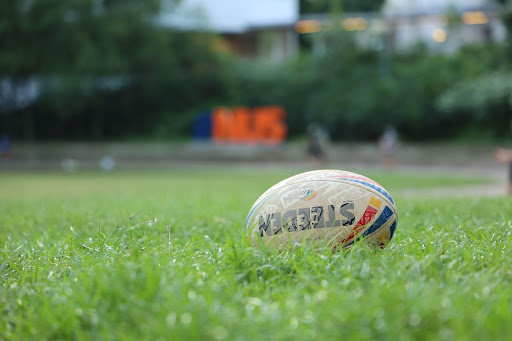Widnes, the town on the River Mersey, has for decades been overachieving in the sport of rugby league. Beyond matchday festivities and iconic players, though, it’s local people—the individuals, the stories, the happenings—that have brought Widnes rugby league to life as a sport second to none. Year by year, an ever-widening series of events and community-based activities has entwined rugby league into the very fabric of the town’s culture, sustaining not only its sporting identity but its deeply ingrained sense of social purpose.
Foundations of identity and pride
Widnes’ rugby league heritage is long-standing and rich. Indeed, in 1895, the town’s club was one of the original breakaway teams that left the rugby union to form what became rugby league—a shift motivated by the need to support working-class players. “It wasn’t just a sporting decision,” says McCann. “It reflected the values and daily realities of the local community.” Interestingly, conversation on the terraces at the time may’ve shifted between a match result and miners’ pay, highlighting how betting and sport were inextricably linked within the social context. Despite the sport evolving, that intersection of friendship and contest has never left.
It’s perhaps worth noting Widnes didn’t just play its role in developing the sport—it helped form its very fabric. Rugby league in Widnes rapidly became an event of civic pride, not only bringing working-class families more than simple entertainment but representation. Success was greater than a figure; it was a declaration of identity. To win the Challenge Cup seemed like the whole town had gained the cup, and people gathered not only in pubs and clubs but also in streets and community halls to relish the moment.
Moments of glory and hardship
Throughout the 20th century, Widnes had a succession of highs that cemented its place in rugby league history. The club’s successful run in national competitions throughout the 1930s up until the late 1980s created a shared sense of aspiration and enjoyment. The 1989 World Club Challenge win remains locally remembered not just as a sporting achievement but as an emotional lift to the town.
But there was a cost to success. In the Great Depression, and later in more difficult economic times, the town came together to save its valued club. People donated in small ways—money, time, word of mouth—to protect what they saw not only as a team but as a heritage. These actions created an unbreakable collective strength, an emotional muscle memory that still shapes the way the town supports the club today.
The new face of community influence
In the past few years, the Widnes Vikings’ mission has spread way beyond the pitch. The club has launched a broad array of initiatives that address social problems in the town head-on. Initiatives like Golden Generation, a scheme aimed at combating loneliness among older adults, and Extra Time, a mental health mentoring session for men, show how the sport is being used as a tool for connection and togetherness.
Beyond these mental health efforts, Widnes has also been at the forefront of inclusive sport. Initiatives such as Learning Disability Rugby League (LDRL), wheelchair rugby, and SEN-focused school programs demonstrate that it’s clear there’s a place for all—despite the stereotypes of the able-bodied or athletic by nature—in the sport. It’s part of greater societal change, but Widnes’ efforts appear most genuine. They are community-led, not optics-driven.
Charity and public health partnerships have taken this even higher. “Beat the Scrum,” for example, utilizes retired players to deliver vital health messages and support NHS schemes. It’s a practical, human way of transferring rugby passion into public advantage.
Culture celebrated and preserved
Widnes not only lives its rugby league culture but documents and celebrates it. Commemorations of anniversaries and museum shows are reflection and education alike. These events remember past glories as much as they establish bridges between generations. Grandparents bring grandchildren to see where it all started, sharing not just facts, but feelings—of pride, loyalty, and belonging.
Inclusion-oriented fixtures and celebratory days engender the same feeling of unity. They also provide tangible community returns, such as food bank contributions and campaign initiatives. They are not merely symbolic—they are solutions to actual issues like loneliness and poverty. And, in their own low-key manner, they continue to define what rugby league is all about in Widnes.
Closing
Widnes is not England’s largest or wealthiest town, yet its rugby league soul is a behemoth, a product of the generations of local pride, mutual achievement, and shared growth. The game itself here has always been more than a game—it’s a reflection of the town itself, a theatre for its strength, and a platform for its hopes. From ancient divisions to modern social movements, Widnes’ history of rugby league shows how a people with an unshakeable heart can weave a sporting and deeply human legacy.


